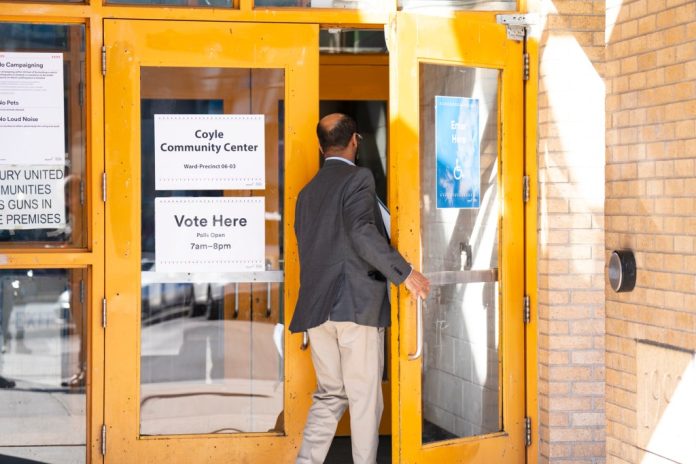Facebook Twitter (X) Instagram Somali Magazine - People's Magazine
The upcoming presidential election has stirred deep political and emotional divides among the Minnesota Muslim population, particularly within the Somali American community. As the campaign season intensifies, many are reconsidering their historical loyalty to the Democratic Party over U.S. foreign policy, particularly in relation to the Israeli-Palestinian conflict.
Protest Vote Emerges: The Abandon Harris Movement
Leading the push for change is Mustafa Aweys, who has been seen outside the Karmel Mall in south Minneapolis distributing flyers urging Muslims to consider voting for a third-party candidate. Aweys, a recent University of Minnesota graduate, is part of the “Abandon Harris” movement. This grassroots campaign argues that the Biden-Harris administration has failed to prevent what they view as genocide in Gaza, compelling them to take their dissatisfaction to the ballot box.
The movement advocates for Green Party candidate Jill Stein, who has promised to end the conflict that erupted after the October 7, 2023, Hamas attack on Israel. That event claimed the lives of nearly 1,200 Israelis and led to the capture of 250 hostages. In retaliation, Israeli strikes have reportedly resulted in the deaths of 43,000 Palestinians.
Divided Opinions in the Somali Community of Minnesota
Aweys’ campaign has sparked mixed reactions among voters leaving Friday prayers at the Karmel Mall mosque. While some embraced his call for protest, others remained loyal to the Democratic Party, viewing Vice President Kamala Harris as the lesser of two evils compared to Republican candidate Donald Trump.
One man, accepting a flyer, agreed that “We don’t want Republicans, we don’t want Democrats… This woman [Stein] will help Palestine.” Meanwhile, another voter firmly stated, “I’m voting for Kamala Harris, straight up,” adding that a third-party vote would indirectly benefit Trump.
Aweys pushed back: “How is it the lesser of the two evils if she’s committing the genocide?” The voter countered, “She’s not, it’s Israel. But I’ll just tell you right now… [voting third-party] is a Trump vote.”
The Stakes in Minnesota: Domestic vs. Foreign Policy
The controversy highlights a broader dilemma within the community. According to Yusuf Abdulle, executive director of the Islamic Association of North America, the election is both critical and polarizing. Abdulle explained that most local Muslim religious leaders continue to support Harris, arguing that while both major parties maintain similar stances on Israel, Democrats have a better record on issues affecting Muslims domestically.
Rep. Ilhan Omar (D-MN), Attorney General Keith Ellison, and other prominent Somali American leaders are also rallying for Harris, emphasizing her support for humanitarian law. Omar acknowledged Harris’ influence on Secretary of State Antony Blinken and Defense Secretary Lloyd Austin, who urged Israel to permit more humanitarian aid into Gaza.
Growing Momentum for Change
The Abandon Harris movement is not limited to Minnesota. Initially sparked by calls for a ceasefire over a year ago, it has expanded its reach to key battleground states like Wisconsin, Michigan, and Pennsylvania. Ruqia Abdi, a volunteer for the movement, clarifies to voters that leaving the presidential section blank or voting third-party sends a powerful protest message. “The point here is… they will know you are protesting so they will hear you,” she said.
The campaign’s outreach extends to places like Rochester, St. Cloud, Willmar, and Faribault, seeking to make an impact even where Harris is expected to win.
The Minnesota Voter Perspectives: Economy vs. Foreign Policy
Economic concerns are also driving the shift. Sharmake Mohamud, a trucking business owner in Rosemount, said he would likely vote for Trump due to economic reasons, despite being a lifelong Democrat. “The economy was better under Trump,” he noted, expressing skepticism that Gaza would influence any candidate’s foreign policy due to the power of lobby groups like AIPAC.
Others, like Abdirahman Mohamed from Lakeville, are turning to Jill Stein out of disillusionment with both major parties. He cited the U.S. economy and the White House’s significant financial support for Ukraine as key factors. “I used to be a Democrat,” he said, “but not anymore.”
With less than a week to go until Election Day, Minnesota’s Muslim community remains split. The outcome of this division could signal a broader shift in the political landscape, especially if the Abandon Harris movement manages to resonate in other key states.

